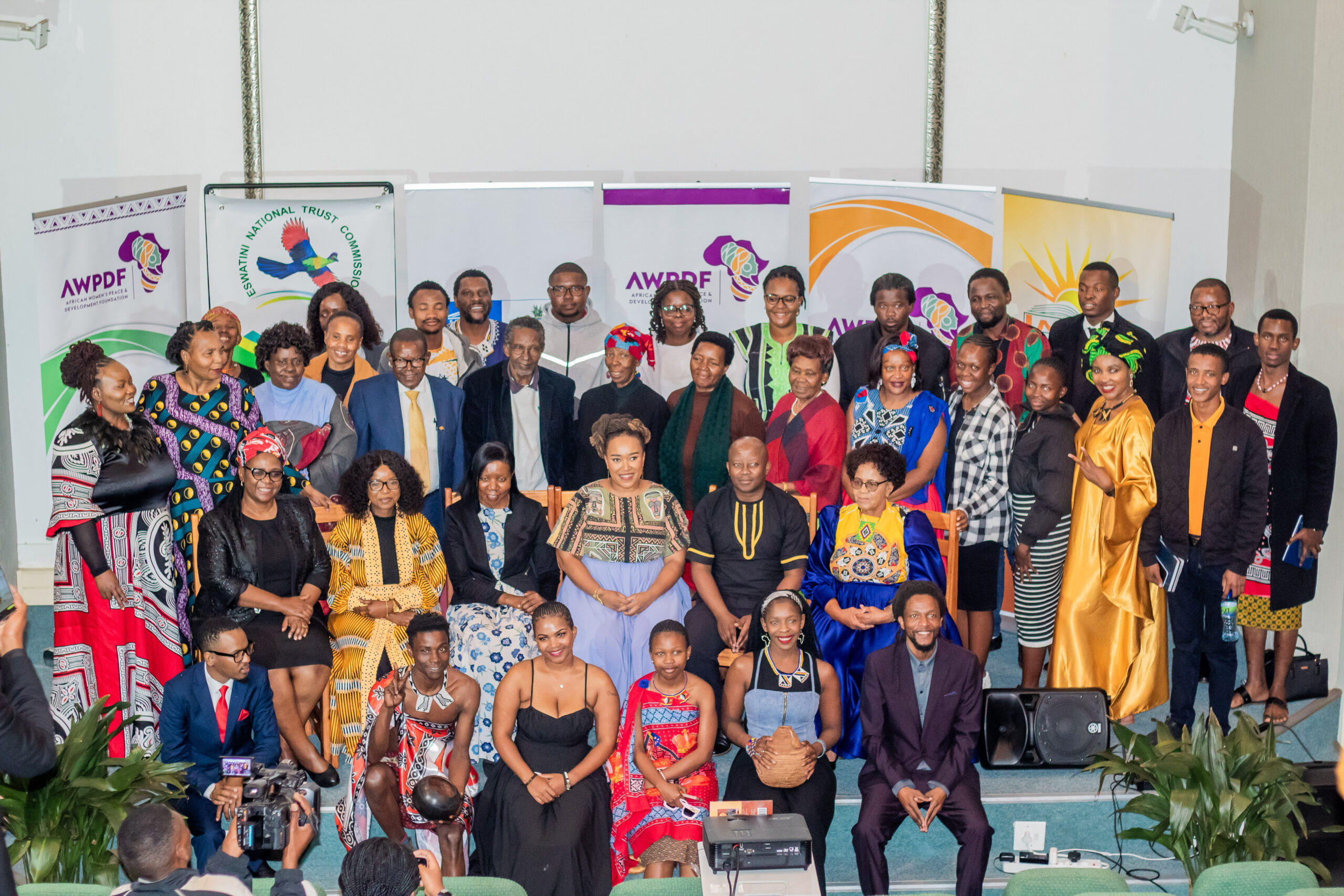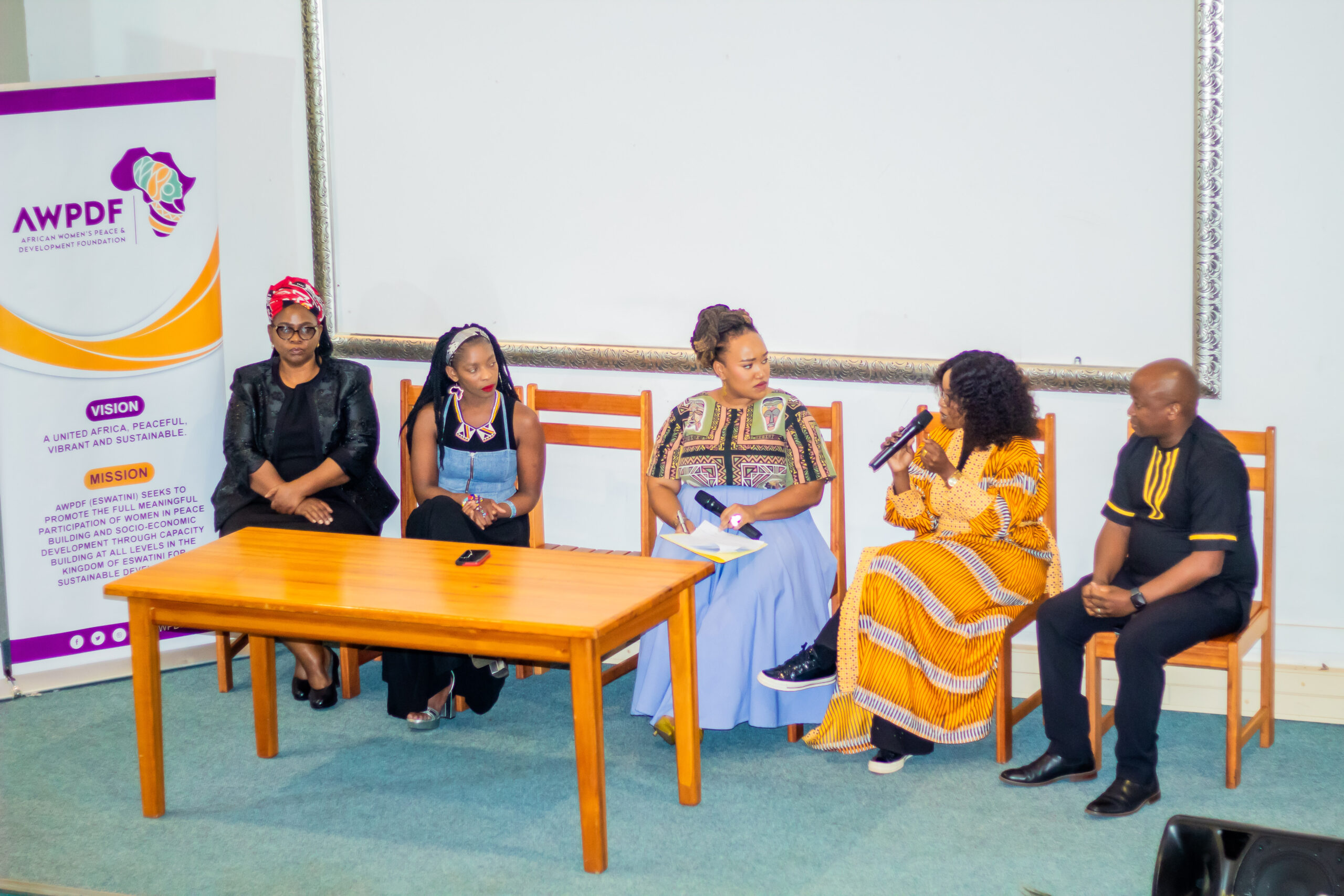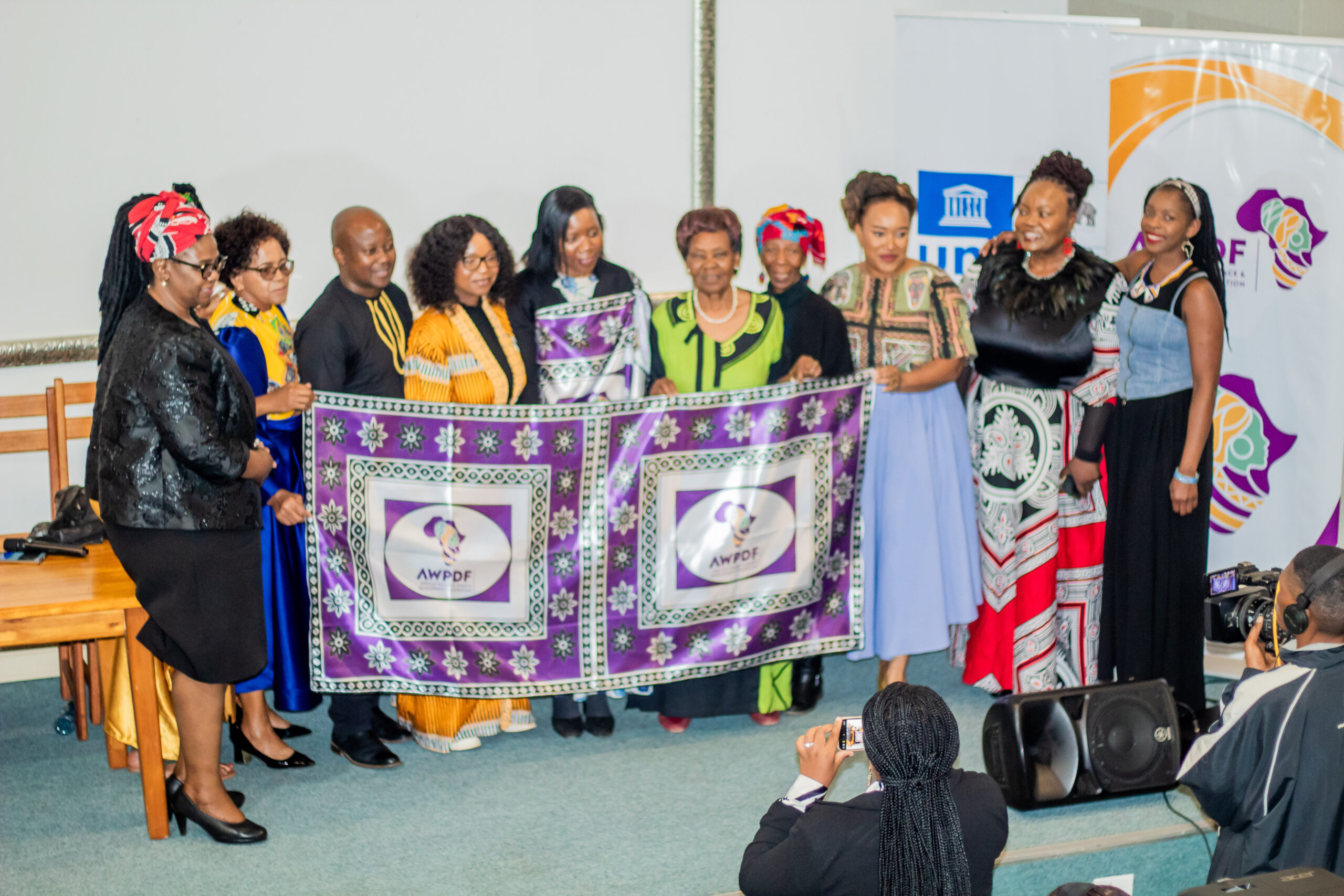Covered by Musomuhle Mndzebele
PR & Marketing at Media Plug Eswatin
On May 23rd, 2025, the African Women Peace and Development Foundation (AWPDF) hosted a landmark public lecture at King Sobhuza II Memorial Park, adding another powerful chapter to its ongoing advocacy for justice, cultural identity, and sustainable development across the continent. The event, held in commemoration of Africa Day 2025, was themed “Justice for Africans and People of African Descent through Reparation.” It brought together influential voices, civil society actors, traditional leaders, and government representatives to confront historic injustices and emphasize the urgent need for reparations as a foundation for true justice.

A Call for Justice and Reparation
The theme struck a deep chord with attendees, echoing a long-standing demand for reparative justice—acknowledging that historical crimes such as colonization, land dispossession, cultural erasure, and systemic marginalization require redress, not charity. AWPDF emphasized that reparations are not favours , but rights rooted in human dignity and international justice.
Key discussions focused on the need for strong legal frameworks and policy enforcement to reclaim lands lost through colonial and post-colonial injustices. In Eswatini, speakers stressed the importance of utilizing existing laws to reclaim ancestral lands and halt the ongoing sale of land to foreign entities. Continued external land ownership perpetuates dependency and economic disempowerment. Reclaiming and protecting land promotes national sovereignty, cultural pride, and long-term resilience—crucial elements for building self-sufficient communities.
Reviving Culture and Heritage
Cultural revival was a major highlight of the lecture, underlining the importance of preserving indigenous traditions and knowledge systems that form the core of African identity. Ceremonies such as Umhlanga (Reed Dance) and Lusekwane were celebrated as vital expressions of unity, pride, and generational continuity.
The forum also amplified the call for the return of African cultural artifacts that remain in foreign museums—looted during colonial rule. The repatriation of these cultural treasures is central to restoring Africa’s historical dignity, reasserting its cultural sovereignty, and reconnecting future generations with their authentic heritage.
Reclaiming Indigenous Knowledge in Health
A compelling segment of the event spotlighted traditional medicine and the urgent need to reintegrate indigenous healing practices into modern healthcare systems. Long before pharmaceuticals, African communities relied on natural herbs and remedies to maintain wellness. However, colonization and globalization led to the marginalization of these affordable and accessible treatments.
Speakers emphasized that traditional medicine must be recognized, preserved, and supported—not as an alternative, but as a complementary system to modern healthcare. Reclaiming this knowledge is essential for health sovereignty, cost reduction, and cultural pride.

Youth Empowerment and Local Innovation
With Africa’s population increasingly dominated by youth, the forum emphasized the need to harness this demographic dividend. Young people were encouraged to leverage local resources, indigenous knowledge, and technology to create innovative solutions, sustainable businesses, and meaningful employment.
Young entrepreneurs were especially called to support local industries, artisans, and farmers—shifting from reliance on imported goods to a model of economic self-reliance. This empowerment not only stimulates local economies but also safeguards cultural and intellectual heritage.
Building Peace and Strong Institutions: SDG 16 in Action
Another major theme was the importance of Sustainable Development Goal 16 (SDG 16), which focuses on peace, justice, and strong institutions. The forum reiterated that justice and peace are inseparable. For any society to be stable and inclusive, access to justice must be universal and corruption must be eradicated.
Strong, transparent institutions are the backbone of a thriving society. The forum called on governments to implement systems that promote accountability and inclusivity, especially for historically marginalized groups. Justice for Africa includes dismantling systems of modern-day slavery, exploitation, and inequality—and building a future where human rights are protected for all.
A Return to Roots: Reclaiming Our Identity and Economy
The event ended with a powerful call to reconnect with Africa’s roots—culturally, economically, and spiritually. Traditional foods, natural remedies, indigenous crafts, and ancestral knowledge were highlighted as pillars for sustainable economic development. Africans were urged to resist uncritical dependency on foreign goods and systems, and instead nurture local industries and innovations.
A key point was the enforcement of land protection laws. The government must take decisive steps to reclaim and safeguard ancestral lands, halting ongoing acquisitions by foreign buyers that echo colonial legacies. A self-sufficient Africa must begin by valuing and maximizing what already exists within its borders.
Moving Forward: Justice as a Collective Responsibility

The Africa Day 2025 Public Lecture demonstrated that justice and reparations are not abstract ideals—they are immediate, actionable imperatives. Achieving them requires political will, cultural revival, empowered communities, and a pan-African vision of resilience.
As we celebrate Africa’s vibrant cultures and complex histories, let us also recommit to reclaiming our land, our traditions, and our dignity. Justice through reparations is essential for healing generational wounds and laying the foundation for an inclusive, prosperous, and peaceful continent
Join us in continuing the fight for justice, sovereignty, and cultural pride. The future of Africa depends on it.
